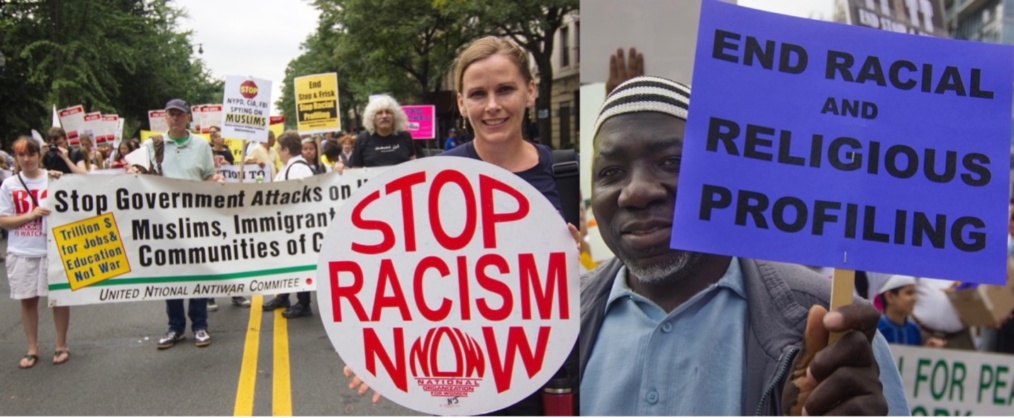
Racial and Religious Profiling in the United States in the Name of ‘National Security’
Many things changed in the United States following the 9/11 terrorist attacks. Changes in law, policy, and security were made not only in the United States but around the world, in order to tackle the growing threat of terrorism. In response to these attacks, the United States government launched a military campaign called the “War on Terror.” This led to the enactment of many laws for law enforcement agencies to protect against terrorist activities.
The Federal Bureau of Investigation, the Department of Justice, and the Department of Homeland Security are just some of the law enforcement agencies that are effective in combating terrorism. However, there is a major flaw in their combating measures. This is their improper use of racial profiling used to address national security and public safety concerns. Racial profiling is wrong and has been proven to be a very ineffective measure for preventing terrorism.
The post-9/11 era has seen racial profiling of people perceived to be Muslim in the U.S. through many different factions. This has included airport profiling, surveillance of Muslim communities, detention, deportations, special registration of immigrants, and much more. Many American Muslims have been treated as potential terrorists based on their faith alone. Following the attacks, law enforcement agencies detained over a thousand Muslims in the United States, both citizens, and noncitizens, while the government figured out whether they had any connection to the attacks.
This blatant racial and religious profiling went on for years. The first step to try and prohibit this was in 2003 when the Department of Justice issued guidelines prohibiting racial and ethnic profiling in most law enforcement contexts. According to the guidelines, profiling is ineffective because it is “premised on the erroneous assumption that any particular individual of one race or ethnicity is more likely to engage in misconduct.” These guidelines also emphasize that race-based assumptions in law enforcement “perpetuate negative racial stereotypes that are harmful to our rich and diverse democracy, and materially impair our efforts to maintain a fair and just society.”
Shortly after his inauguration, President Joe Biden reversed former President Donald Trump’s Muslim Travel Ban. This ban was an executive order that prevented individuals from primarily Muslim countries, and later, from many African countries, from entering the United States. It was seeking to keep out or deport people perceived to be Muslim based upon the racist assumption that “they” are violent potential terrorist enemies of the U.S. nation. There are solutions to improve this major flaw through more intense and reconstructed training as well as implementing new policies for all law enforcement agencies.
The next step that can be taken is for Congress to pass the End Racial and Religious Profiling Act which was most recently introduced as part of the George Floyd Justice in Policing Act. This Act would prohibit federal, state, and local law enforcement from targeting a person based on actual or perceived race, ethnicity, national origin, religion, gender, gender identity, or sexual orientation without trustworthy information that is relevant to linking a person to a crime. These measures would help demonstrate to the many diverse communities in our nation’s commitment to protecting national security based on facts rather than on bias.
It is so important now than ever before, to change racist, common sense ways of thinking about Arabs, Iranians, Afghans, and anyone perceived to be connected, in one way or another, to the idea of a “Muslim terrorist threat.”
